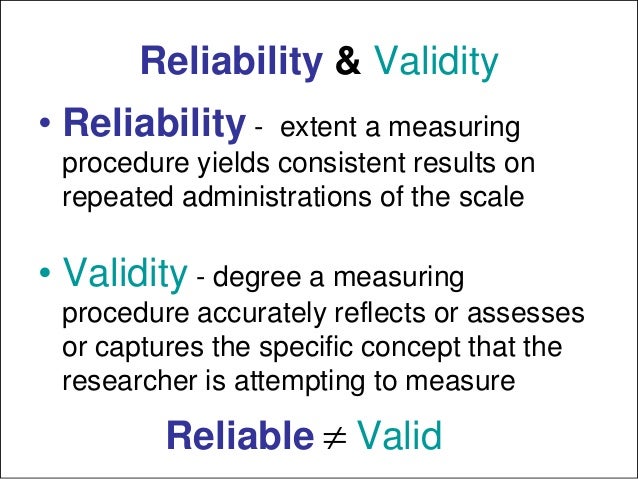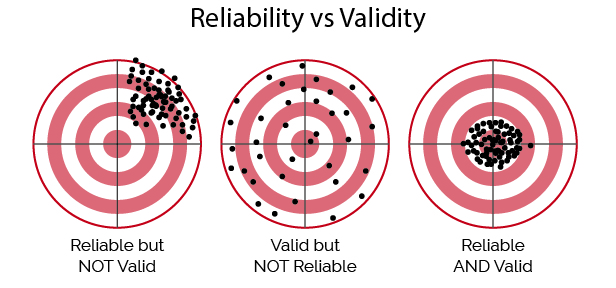
There are three major types of validity that are referenced in tests.Ĭriterion Validity. Of course, validity isn’t quite as simple as that. And if it’s valid, it can be a useful tool for diagnosis. It’s also used in medicine and psychology to determine how useful their surveys and questionnaires are.įor instance, a questionnaire created to determine if a person has a type of illness is valid if the answers predict whether or not the patient suffers from that disease. Hard measurements – such as weight, temperature, and pH – aren’t the only type of measurements that require determining validity. If the conditions change – even if you’re unaware of them – then you should get a different measurement. Valid test results need not be consistent as long as they’re accurate. If you have a ten-pound weight and your scale reads it as ten pounds, then it’s valid. Validity is the measure of whether or not your test is accurate. There are four major types of determinations of reliability: test-retest, inter-rater, parallel forms, and internal consistency. There are three major types of determinations of validity: criterion, content, and construct. If a radar gun isn’t properly calibrated, it may register 50 mph for every car that goes by at 35 mph. If you keep getting different results from measurements under the same conditions, then it’s neither reliable nor correct.Ī tool can have reliable measurements that aren’t valid. Test results can’t be valid if they aren’t reliable. If your instruments for collecting data don’t produce reliable results, you can’t draw any conclusions.

If your results are skewed, then your conclusion is likely to be as well. Validity is essential in all types of testing. If a measurement is consistent, then it’s reliable. If a measurement is accurate, then it’s valid.


Ideally, you want your equipment to be both reliable and valid – or consistent and accurate – be it a thermometer, questionnaire, or scale.

Validity is all about accuracy in your measurements, while reliability determines consistency. Both are used to determine how well a test measures something, but the two of them tell you different things about your test. The difference between validity and reliability is important in research, testing, and statistical analysis.


 0 kommentar(er)
0 kommentar(er)
